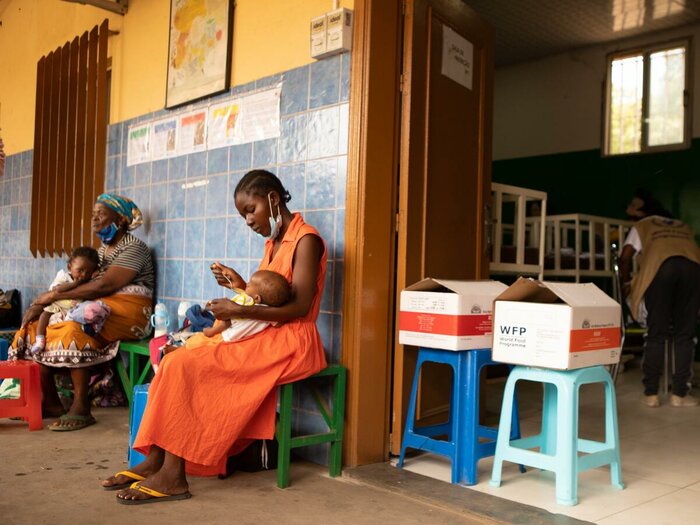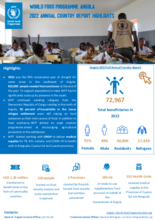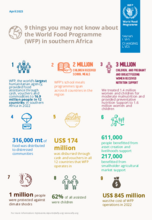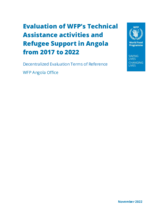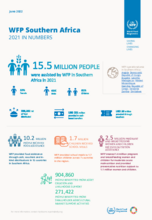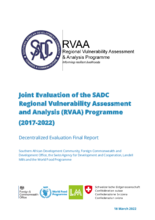Angola
- 1.58 million
- people in acute food insecurity in southwestern Angola
- 54.7%
- of rural populations live below the poverty line
- 32.8 million
- population
Located in southwestern Africa, Angola is a resource-rich country that has made substantial economic and political progress since the end of the civil war in 2002. However, Angola’s agricultural resources remain underutilized, and the country is exposed to various risks related to climate change. Severe food insecurity continues to affect the livelihoods of many families due to cyclical droughts in the southwest of the country.
Angola is ranked 148 out of 189 countries in the 2020 Human Development Index, and 97 out of 116 in the 2021 Global Hunger Index. Although the number of undernourished people has decreased, food insecurity and undernutrition remain serious public health problems. This is driven by a range of factors including poverty, limited dietary diversity, poor sanitation and hygiene conditions, and gender inequality.
What the World Food Programme is doing in Angola
-
Refugee assistance
-
WFP is working with partners, including the UN Refugee Agency and World Vision International, to ensure that refugees from DRC are able to meet their basic food and nutrition requirements, and improve their self-reliance. WFP assists approximately 6,500 refugees with regular food assistance, with an asset creation and livelihoods programme for 125 families also planned.
-
Commodity vouchers
-
Following the most severe drought in the south since 1981, WFP started a commodity voucher operation to support families. The distributions are carried out in coordination with the Angola Civil Protection office, and have assisted approximately 30,000 people in 2022.
-
Nutrition
-
While high levels of acute food insecurity, inadequate care and feeding practices increased acute malnutrition in the drought-affected areas, WFP started nutrition interventions to ensure that vulnerable population groups, primarily children aged 6-59 months, receive integrated nutrition support. From January up to October 2022, approximately 19,000 children received treatment for moderate acute malnutrition at the community level.
-
School feeding
-
To provide nutrition-sensitive hot meals for vulnerable primary school children in drought-affected areas, WFP plans to start a school feeding programme based on locally sourced products in the south of the country. The programme will stimulate local agricultural production, improve pupils’ concentration, boost enrolment and attendance, and build the capacity of local authorities to implement similar programmes in the future.
-
Technical assistance
-
WFP builds government capacity to implement programmes that improve food security and nutrition. This includes in areas such as school feeding, nutrition, vulnerability analysis and mapping. WFP supports food security and nutrition assessments, contributes to national food security policies and strategies, assists in the organization of workshops, and provides training for government staff.
-
Service provision
-
To guarantee that humanitarian and development actors, and national systems, have access to WFP expertise and services, we provide on-demand and supply chain services for partners. Under this activity, WFP works with the Government to procure Ready-to-Use Supplementary Food for the national COVID-19 nutrition response. We also work with the United Nations Development Programme in the implementation of the Global Fund Grant, providing transport and warehousing of medical supplies to tackle COVID-19, HIV/AIDS, tuberculosis and malaria.
Find out more about the state of food security in Angola
Visit the food security analysis pageContacts
Office
Samba street, Rosalinda Condominuim, United Nations Building, 7th Floor Block B
Luanda
Angola

